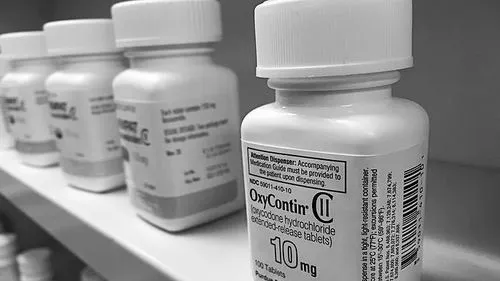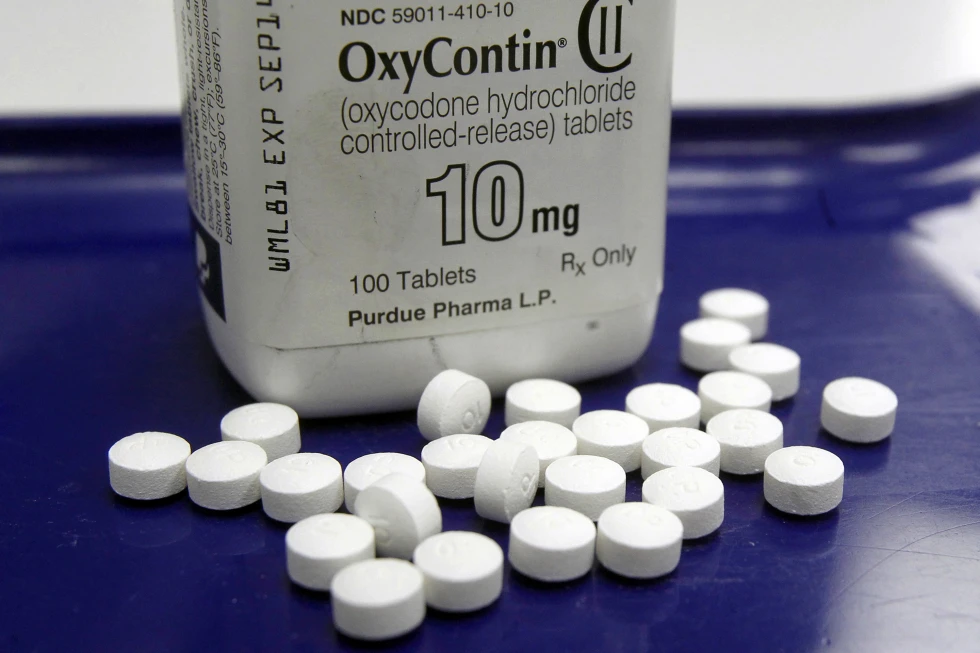Consulting firm McKinsey and Co. has recently come to an agreement to pay a substantial $78 million to settle claims from insurers and health care funds.
These claims allege that the firm’s work with drug companies played a significant role in exacerbating the opioid addiction crisis that has plagued our nation for years.
This significant development was unveiled late Friday in documents filed in federal court in San Francisco. While the settlement has been proposed, it still awaits the final approval of a judge.
If approved, McKinsey will be required to establish a fund aimed at reimbursing insurers, private benefit plans, and other entities for some or all of their prescription opioid costs.
The magnitude of this settlement and the implications it carries cannot be understated. It is a clear indication of the growing accountability and responsibility that consulting firms and corporations must now face in light of their involvement in the opioid crisis.
McKinsey’s decision to settle these claims speaks volumes about the gravity of the situation and the need for restitution.
The opioid crisis has wreaked havoc on countless individuals and families across the country, resulting in devastating consequences for public health and well-being.
It has been a complex and multifaceted issue, with various factors contributing to its escalation. The role of consulting firms and their collaboration with drug companies has been a subject of scrutiny and criticism in this context.
The acknowledgment of this responsibility by McKinsey through the proposed settlement is a significant step towards addressing the harm caused by their actions.
Moreover, the establishment of a reimbursement fund signifies a tangible effort to alleviate the financial burden that insurers and health care funds have shouldered as a result of the opioid crisis.
This fund has the potential to provide much-needed relief to those who have been adversely affected by the exorbitant costs associated with prescription opioids.
The implications of this settlement extend beyond the immediate financial compensation. It sets a precedent for accountability within the consulting industry and sends a clear message about the repercussions of engaging in practices that contribute to public health crises.
The agreement underscores the need for heightened ethical standards and diligence in the consulting sector, particularly when it comes to engagements with pharmaceutical companies and other entities involved in the healthcare landscape.
As we await the final decision of the judge regarding the approval of the settlement, it is imperative to recognize the significance of this development.
It serves as a reminder of the far-reaching impact of the opioid crisis and the shared responsibility of all stakeholders in addressing its consequences.
The proposed settlement represents a step towards rectifying the harm caused by McKinsey’s involvement and signifies a commitment to promoting accountability and restitution in the face of public health crises.
In conclusion, the $78 million settlement proposed by McKinsey and Co. is a pivotal development in the ongoing efforts to address the opioid addiction crisis.
It reflects a recognition of accountability and a commitment to rectifying the harm caused by the firm’s involvement.
The establishment of a reimbursement fund further underscores the tangible steps being taken to alleviate the financial burden on insurers and health care funds.
Ultimately, this settlement sets a precedent for ethical conduct and responsibility within the consulting industry, sending a clear message about the repercussions of actions that contribute to public health crises.
As we look towards the future, it is crucial to continue prioritizing accountability and restitution in our collective efforts to combat the opioid crisis and its far-reaching impact.
The allegations against McKinsey regarding its involvement with Purdue Pharma in the marketing and sales tactics of OxyContin have raised serious concerns about the ethical responsibilities of consulting firms and the impact of their actions on public health.
The insurers’ claims that McKinsey’s aggressive strategies led to the overprescription of highly addictive opioids, resulting in a significant number of deaths and financial burden on the healthcare system, are deeply troubling.
The fact that insurers were compelled to cover the costs of prescription opioids, despite the availability of safer and more affordable alternatives, underscores the detrimental effects of McKinsey’s alleged collaboration with Purdue Pharma.
The argument that McKinsey’s actions directly contributed to the opioid crisis, which claimed the lives of nearly 280,000 individuals in the U.S. from 1999 to 2021, is a stark reminder of the human toll of corporate decisions.
Furthermore, the insurers’ assertion that McKinsey continued to work with Purdue Pharma even as the severity of the opioid crisis became apparent raises questions about corporate accountability and the prioritization of profit over public health.
The persistence of McKinsey’s involvement in promoting OxyContin, despite mounting evidence of its addictive nature and harmful consequences, reflects a concerning disregard for the well-being of patients and communities affected by opioid addiction.
The impact of the opioid crisis extends beyond the loss of lives, as insurers have also been burdened with the costs of addiction treatment and healthcare services for affected individuals.
The financial strain on insurers, as a result of McKinsey’s alleged role in perpetuating the opioid epidemic, highlights the broader economic implications of corporate actions that prioritize short-term gains over long-term societal well-being.
In light of these allegations, it is imperative for regulatory authorities to conduct a thorough investigation into McKinsey’s collaboration with Purdue Pharma and hold the firm accountable for any misconduct.
The potential consequences of consulting firms engaging in activities that contribute to public health crises cannot be understated, and it is essential to ensure that corporate entities are held to the highest ethical standards in their business practices.
Moreover, this case underscores the need for greater transparency and oversight in the consulting industry, particularly when it comes to engagements with pharmaceutical companies and healthcare providers.

The potential for conflicts of interest and unethical behavior in such collaborations necessitates robust regulatory frameworks and ethical guidelines to safeguard the interests of patients and the public.
Ultimately, the allegations against McKinsey regarding its role in promoting OxyContin and exacerbating the opioid crisis serve as a sobering reminder of the ethical responsibilities that corporations, including consulting firms, bear in their pursuit of profit.
The human cost and societal impact of such actions cannot be overlooked, and it is incumbent upon both the corporate sector and regulatory authorities to ensure that business practices prioritize the well-being of individuals and communities.
The outcome of the investigation into these allegations will undoubtedly have far-reaching implications for the consulting industry and the broader landscape of corporate accountability.
The recent settlement marks the culmination of a protracted endeavor to hold McKinsey accountable for its involvement in the opioid epidemic.
In a significant development in February 2021, the company consented to a substantial payment of nearly $600 million to various entities, including U.S. states, the District of Columbia, and five U.S. territories.
Subsequently, in September, McKinsey disclosed a separate agreement, amounting to $230 million, with school districts and local governments.
When approached for commentary on the matter, McKinsey referred to a statement it had issued in September.
In this statement, the company reiterated its position, asserting that it remains steadfast in its belief that its previous undertakings were in compliance with the law, and it vehemently refutes any allegations to the contrary.
Additionally, McKinsey emphasized that the decision to reach a settlement was driven by a desire to circumvent prolonged legal battles.
Furthermore, McKinsey underscored that it ceased providing counsel to clients in relation to any opioid-related business as early as 2019.
The repercussions of McKinsey’s involvement in the opioid crisis have reverberated across various sectors, prompting a rigorous examination of the company’s conduct and its implications.
The financial settlements, while substantial, represent a fraction of the broader impact and scrutiny that McKinsey has faced in the wake of its involvement in the opioid epidemic.
The magnitude of the settlements underscores the gravity of the allegations leveled against McKinsey and the imperative to address the far-reaching consequences of its actions.
The sizable financial commitments are indicative of the severity of the situation and the necessity to redress the harm caused by the opioid crisis.
The company’s assertion of the lawfulness of its past activities, juxtaposed with the substantial settlements, underscores the complexity and contentious nature of the issues at hand.
The divergent perspectives on the legality and ethical implications of McKinsey’s involvement in the opioid crisis underscore the multifaceted nature of the matter and the challenges inherent in navigating the intersection of legal, ethical, and societal considerations.
The resolution of this protracted legal saga serves as a pivotal moment in the ongoing discourse surrounding corporate accountability and the complexities of addressing the fallout from the opioid epidemic.

The settlements, while emblematic of a significant step towards redress, also serve as a catalyst for continued introspection and examination of the broader systemic issues at play.
In conclusion, the recent settlements represent a watershed moment in the protracted effort to hold McKinsey accountable for its role in the opioid epidemic.
The financial commitments, coupled with the company’s steadfast denial of any wrongdoing, underscore the intricacies and contentious nature of the matter.
As the fallout from the opioid crisis continues to unfold, the settlements stand as a testament to the imperative of addressing the far-reaching consequences and grappling with the complexities of corporate accountability in the face of societal challenges.
